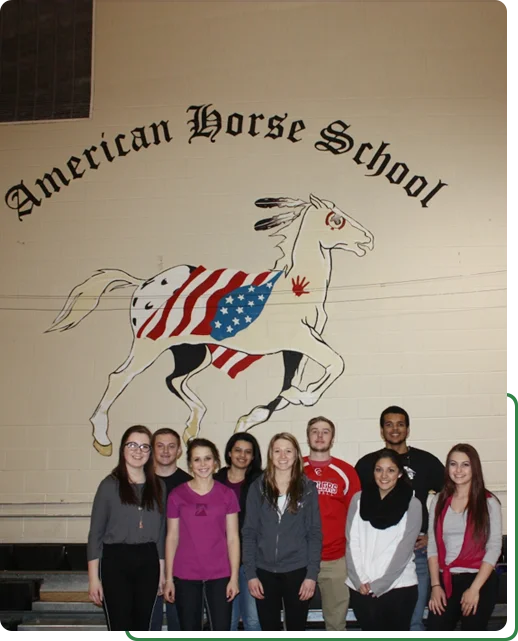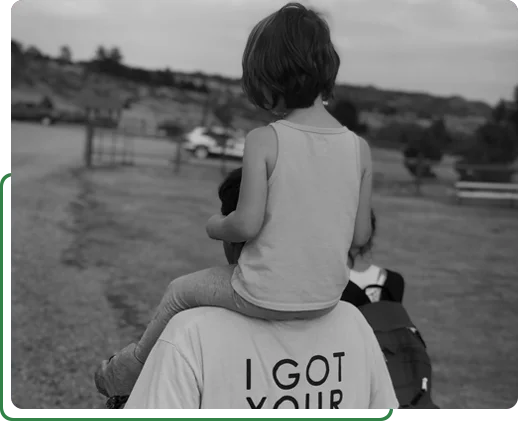Those ratings that are found to be statistically significant are highlighted in BOLD.
No significant statistical difference was found between the Peer Leaders and the control group on self-reported ratings of their connectedness to their family, friends, activities and services offered in their community. However, all ratings for the Peer Leaders were higher than the control group’s ratings in these areas.
There were significant statistical differences in the following areas in how the Peer Leaders reported vs the control group: their connectedness to school and mentoring friendships with adults, their feelings toward school, their help seeking behaviors and the people and resources available to themselves and their friends. Additionally, there is significant statistical difference in help seeking attitudes between the Peer Leaders and control group. The peer leaders also were able to name a significantly higher number of trusted adults they trust and would seek support from concerning a friend.
These results indicate the control group reports a level of connectedness and help seeking behaviors that are not supported by their responses in regards to the action steps they would take to seek support for themselves or their friends. Simply, the control group can describe what needs to happen but do not have the knowledge or skills to seek help.
The Peer Leaders’ responses are congruent with their knowledge and understanding of help seeking behaviors and attitudes toward seeking help for themselves or their friends.


| Please circle an answer: | Rarely (1) | Sometimes (2) | Usually (3) | Always (4) | |||||
|---|---|---|---|---|---|---|---|---|---|
| 9th | 11/12 | PL | |||||||
| Friends talk to me about their problems | 2.5 | 2.7 | 3.1 | ||||||
| Other teens come to me for advice | 1.9 | 1.9 | 2.3 | ||||||
| I’m involved in music, art, sports, clubs | 2.7 | 2.6 | 3.4 | ||||||
| I like school | 2.5 | 2.3 | 2.8 | ||||||
| I feel successful at school | 2.5 | 2.6 | 3.0 | ||||||
| Teachers treat me with respect | 3.1 | 3.3 | 3.4 | ||||||
|
In the past six months, how wouldyou rate yourself: |
Strongly Disagree | Disagree | Agree | Strongly Agree | ||||
|---|---|---|---|---|---|---|---|---|
| 9th | 11/12 | PL | ||||||
| I feel supported and cared for by family | 3.3 | 3.3 | 3.7 | |||||
| I have positive caring friends | 3.0 | 3.2 | 3.5 | |||||
| I have mentor friendships with adults | 2.6 | 2.7 | 3.4 | |||||
| I am active in healthy activities, hobbies, etc. | 3.1 | 3.1 | 3.6 | |||||
| I take time to be generous and help others | 3.1 | 3.1 | 3.4 | |||||
| I feel strong spiritually in my faith, beliefs, culture | 2.9 | 2.9 | 3.3 | |||||
| If needed I could get counseling help | 2.7 | 3.1 | 3.4 | |||||
| I needed I could get medical services | 2.8 | 3.1 | 3.5 | |||||
| I feel connected at school | 2.7 | 2.7 | 3.2 | |||||
|
Rate you knowledge on the topics listed. I know: |
Very Little (1) | Very Much (4) | ||
|---|---|---|---|---|
| 9th | 11/12 | PL | ||
| Activities and people that help teens in distress | 2.2 | 2.3 | 2.9 | |
| Specific adults that can help teens | 2.6 | 2.7 | 3.2 | |
| Formal helping resources such as counselors, etc. | 2.5 | 2.7 | 3.1 | |
| An adult who I trust to talk to if I need help | 2.7 | 3.1 | 3.6 | |
| If I needed… | Strongly Disagree | Disagree | Agree | Strongly Agree | ||||
|---|---|---|---|---|---|---|---|---|
| 9th | 11/12 | PL | ||||||
| I believe a counselor or other adult at school could help me | 2.5 | 2.9 | 3.4 | |||||
| I would talk to a counselor or other adult at school | 2.4 | 2.6 | 3.1 | |||||
| My friends would want me to talk to an adult at school | 2.2 | 2.5 | 2.9 | |||||
| My family would want me to talk to an adult at school | 2.5 | 2.8 | 3.2 | |||||
| My school has people who can help students | 2.9 | 3.1 | 3.5 | |||||
| I can think of an adult who I trust to help a suicidal friend | 2.8 | 2.9 | 3.5 | |||||
| Strongly Disagree | Disagree | Agree | Strongly Agree | |
|---|---|---|---|---|
| 9th | 11/12 | PL | ||
| People should be able to handle their own problems without help | %NO | 59 | 56 | 86 |
| Friendship support is enough to keep friends safe | %NO | 26 | 44 | 70 |
| Adults need peers involved in prevention because peers often notice friends in distress much earlier than adults | %YES | 75 | 81 | 98 |
| Do you know an adult you would go to if you had a concern about a friend? | %YES | 53 | 61 | 95 |
| Strongly Disagree | Disagree | Agree | Strongly Agree | ||
|---|---|---|---|---|---|
| 9th | 11/12 | PL | |||
| Trusted Adults = | 1.2 | 1.0 | 3.3 | ||
| Family | 65% | 61% | 39% | ||
| School | 26% | 33% | 51% | ||
| Community | 9% | 6% | 10% | ||



